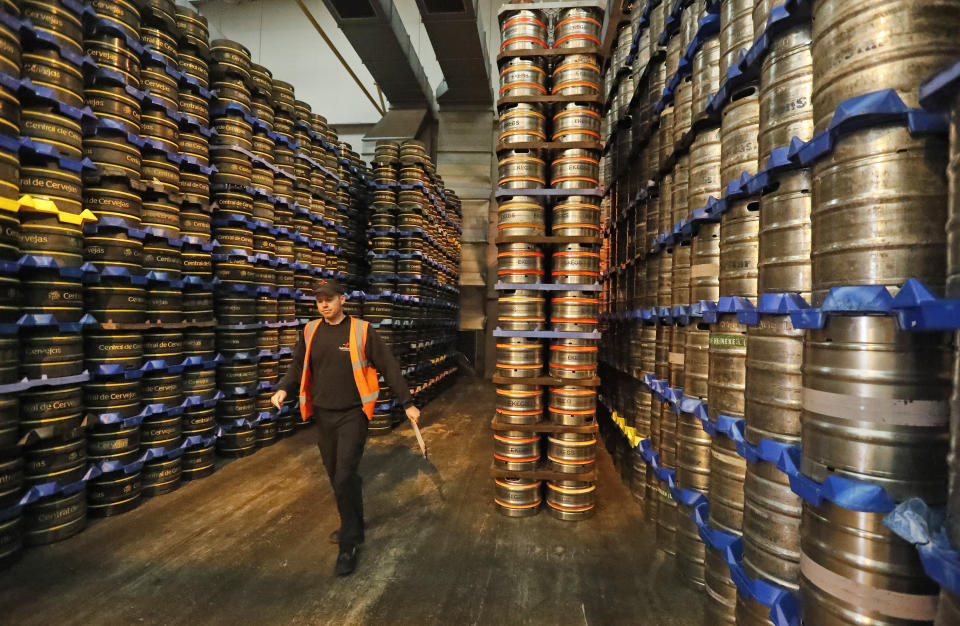Coronavirus lockdown could cost the beer industry $1 billion in untapped beer
Perfectly good beer is going bad in kegs in thousands at a time.
That’s the problem facing brewers, distributors and bars that are dealing with a massive supply of untapped kegs spread out across the country as the coronavirus lockdown persists.
In fact, the growing mass of past-prime kegs has gotten so bad, following a canceled March Madness tournament, the delayed start to baseball, and a St. Patrick’s Day in lockdown, that one beer distributor trade group estimates its become a nearly $1 billion wash for the beer industry.
“We think there's close to a billion dollars worth of impact directly to the beer industry as it relates to just the loss from the product alone,” National Beer Wholesalers Association CEO and President Craig Purser told Yahoo Finance. “This was the worst time this could happen.”
According to Purser, who represents more than 3,000 independently licensed beer distributors across America, on-site consumption of beer at restaurants and bars is highest on St. Patrick’s Day every year. While beer sales at grocery stores rose as more states enacted lockdown orders, on-site consumption still accounts for about 20% of total beer consumption in America. Losing that consumption has sparked a historic backlog of untapped kegs that are moving past their usual shelf life.
Free beer
The struggle now becomes what to do with them. Environmental impacts make simply dumping kegs out problematic and require a special chemical process to ensure safe disposal. Trucking them back to distributorships would also carry the added cost of shipping a 160-pound keg that was supposed to be empty. And much like the problem food providers are facing, kegs can’t easily be repurposed into beer sold in cans or bottles in stores.
“Beer sold in kegs is more perishable. Oftentimes it's created with a shorter shelf life,” Purser explains. “Many times it's not pasteurized like packaged products so it can't be repositioned.”

Despite some cities temporarily allowing the usually illegal sale of to-go alcohol at bars, there seems to be no scalable solution to the problem that’s now ensnared every level of the legally separated beer distribution chain from brewer, to distributor, to retail and venues across the country.
“When you think about that brewer, regardless of size, they had product that was positioned and ready to go for all of these spring activities and certainly for the on-premise accounts,” he said. “And if you're a small brewer, for instance, you might have $30,000 or $40,000 worth of inventory that is unmerchantable as a result of your tasting room being closed.”
Some breweries, like the Willinger brewery in Germany, have opted instead to hand out free beer for customers. Owner Franz Mast told Reuters that it was a better alternative than wasting what his team worked hard to produce. In total the brewery handed out nearly 700 gallons of free beer.
Zack Guzman is the host of YFi PM as well as a senior writer and on-air reporter covering entrepreneurship, cannabis, startups, and breaking news at Yahoo Finance. Follow him on Twitter @zGuz.
Read the latest financial and business news from Yahoo Finance
Read more:
Why Trump’s plan to curtail immigration will slow the coronavirus recovery
Small US towns are neglected from coronavirus relief and it's a 'slap in the face': Georgia mayor
The coronavirus just doubled the risk of mass bankruptcies
Follow Yahoo Finance on Twitter, Facebook, Instagram, Flipboard, SmartNews, LinkedIn, YouTube, and reddit.
